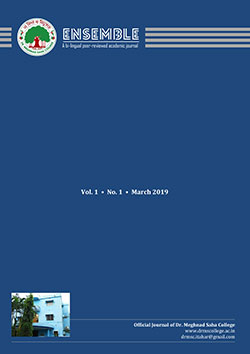BRITISH POLICY OF ‘PROTECTIVE DISCRIMINATION’ AND ITS IMPACT: A CASE STUDY ON UNDERPRIVILEGED SECTION OF THE SOCIETY IN BENGAL
Abstract:
Protective discrimination is the policy of granting special privileges to the downtrodden and the underprivileged sections of society. It is generally based on race, ethnicity, gender, or geographical location. During the second half of the Nineteenth Century, the British Government decided to take special measures for the welfare of the ‘depressed classes’. By the 1880s, special schools, scholarships, and other assistance for the depressed classes had been established, both by the British Government and by the native rulers. The British officers in India, therefore, were strongly motivated to work for the social upliftment of the Depressed Classes. A significant outcome of these ameliorative measures on the part of the British was that the depressed classes were grateful and dependent on Englishmen in their quest for equality. Sekhar Bandyopadhyay explains the situations that led to the application of the device of ‘protective discrimination’ particularly when the high Caste Hindu ‘bhadralok’ began to question the legitimacy of the raj at the turn of the century. Unlike other parts of Bengal, in North Bengal, reservation policy has created complex social relationships among the inhabitants, both indigenous and migrants.
Keywords: downtrodden, depressed classes, Struggle, untouchability, constitution, inequality, consciousness
https://doi.org/10.37948/ensemble-2020-0201-a002
Views: 4154



